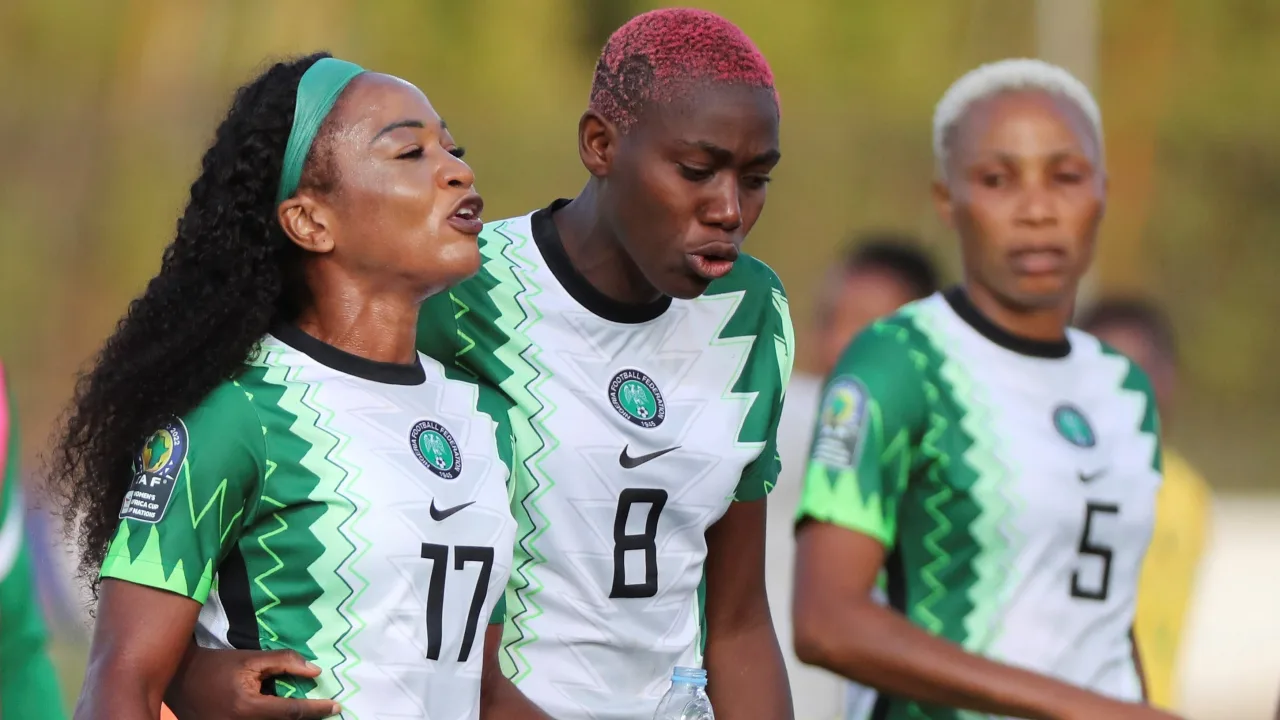A whopping 67% of Nigerians enjoy Football, which demonstrates how much the sport influences Nigerian culture. Football's journey in Nigeria began over 100 years back, forming the country's sporting landscape.
Football in Nigeria dates back to the early 1900s. British colonisers brought the sport to the country in 1904. The first recorded football match happened that same year, kicking off Nigeria's abundant footballing history.
By 1950, Football had become Nigeria's national game. Its quick rise resulted in lots of clubs and associations forming in the early 1900s. This development enhanced Nigerian pride and helped inspire political liberty motions.
Nigeria's football legacy now reaches beyond its borders. Throughout the years, the country has produced first-rate skill, and Nigerian youth groups have actually won the FIFA U-17
World Cup 5 times.
The Super Eagles, Nigeria's national team, are a force in African Football. They frequently receive significant competitions and make their mark internationally.
The British Colonial Introduction of Football to Nigeria
Football arrived in Nigeria throughout the British colonial period. It rapidly recorded the hearts of locals, marking the start of a rich footballing tradition in the country.
The First Football Match in 1904
The first football match in Nigeria took place in June 1904. It was between Hope Waddell Training Institution and the crew of HMS Thistle. The Nigerian group won 3-2, triggering an across the country enthusiasm for the sport.
Hope Waddell Training Institution vs HMS Thistle
I hope the Waddell Training Institution in Calabar played an essential role in early Nigerian Football. Their victory over HMS Thistle's crew showed the skill of Nigerian players. This match set the stage for Football's development in the nation.
Early Football Club Formation (1906-1932)
After the 1904 match, Football's appeal soared. From 1906 onwards, early football clubs began forming, and this grassroots motion spread the sport throughout Nigeria.
The Lagos District Amateur Football Association (LDAFA) was developed in 1932. The LDAFA marked the start of organised Football in Nigeria and paved the way for the sport's future success nationally and internationally.
Who Introduced Football in Nigeria
Football arrived in Nigeria in the early 20th century. British colonisers brought this precious sport to the West African country. It rapidly ended up being a passion that formed Nigeria's sporting landscape for generations.
Role of British Colonisers
British colonisers played an essential function in Nigeria's football history. The first tape-recorded match occurred in June 1904. Hope Waddell Training Institution dealt with the team of HMS Thistle.
The Nigerian team won 3-2. This victory marked the start of a rich football tradition in the
country.
Development of First Football Association
The Lagos District Amateur Football Association (LDAFA) was established in 1932. It prepared for organised
Football in Nigeria, which paved the way for the
nigerian youths Football Association (NFA).
The NFA was founded in 1945. It ended up being the national governing body for Football and manage its advancement across the nation.
Advancement of Local Football Culture
Football quickly took root in Nigeria, ending up being the
national sport by 1946. Its ease of access and basic guidelines assisted it spread quickly. Regional neighborhoods
embraced the game, forming their teams.

This grassroots enthusiasm laid the structure for
Nigeria's future success. The country's passion for Football grew, resulting in accomplishments on the worldwide stage.
"Football ended up being more than just a sport; it developed into a vital Nigerian culture and identity element."
The British colonisers' introduction of Football sparked a sporting revolution in Nigeria. Football's journey mirrored the nation's development from the first match in 1904 to the development of the NFA in 1945.
Today, Football remains an integral part of Nigerian life. It's a testament to the sport's enduring appeal and cultural significance in the nation.
The Rise of Nigerian Football Administration
The Nigerian Football Association (NFA) was developed in 1945. It played a vital function in shaping Nigerian Football. In 1949, the NFA formed Nigeria's very first nationwide football group.
In 1959, Nigeria joined the
Confederation of African Football (CAF), which enabled it to take part in continental competitions. Nigeria also ended up being a FIFA member in 1960, joining the global football neighborhood.
The NFA, later on relabelled the
Nigeria Football Federation (NFF), organised national competitions. They developed the Nigerian Premier League and the Federation Cup, which became the highlights of domestic Football.

Football associations across Nigeria prospered under the NFF's assistance. They nurtured skill and promoted grassroots development.
professional football league Football started in 1990 with sixteen club sides taking part.
"Our objective is to restore football
development of football in nigeria at the national level and repackage the league in line with global best practices," states the
Nigeria National League.
The Premier League was carried out in 2003. This move aimed to enhance domestic football standards and bring in more spectators and sponsors to national competitions.
Nnamdi Azikiwe's Impact on Nigerian Football
Nnamdi Azikiwe, born in 1904 in Zungeru, Northern Nigeria, left an enduring mark on Nigerian Football. His influence shaped the nation's sporting landscape. Azikiwe's passion for sports originated from his varied experiences and education abroad.
Facility of Zik's Athletic Club
In 1938, Azikiwe founded Zik's Athletic Club (ZAC) in Lagos. This club became a symbol of African self-determination. ZAC played an essential function in establishing Nigerian Football.
It supplied a platform for young athletes to showcase their skills. The club promoted regional skill and fostered a
sense of national pride.
The West African Pilot's Influence
Azikiwe's newspaper, the West African Pilot, played a significant role in popularising Football across Nigeria. It extensively covered local matches, team news, and player profiles. This limelights helped grow the sport's fan base.
Football as a Tool for Independence
Azikiwe saw Football's potential as a unifying force in the self-reliance movement. He used the sport to break down ethnic barriers, and Football became a symbol of Nigerian unity through his advocacy.
Azikiwe's efforts connected Football to nationalism, contributing considerably to the sport's growth and forming its function in contemporary Nigeria.
"Football is not simply a game; it's an effective national unity and identity tool."
Nigeria's Journey to International Football Recognition
nigeria professional football league's football journey took a considerable leap forward in 1960. The country acquired FIFA subscription,
marking its entry into global Football. This turning point accompanied Nigeria's self-reliance from British rule.
FIFA Membership and First International Match
Nigeria's first global match happened on 8 October 1949. They dealt with Sierra Leone and won 2-0 in a historic encounter. This success stimulated interest for Football throughout the country.
Early Continental Competitions
Nigeria debuted in the Africa Cup of Nations in 1963. The tournament, hosted by Ghana, saw Nigeria dealing with tough opponents. These experiences proved valuable for the group's growth.
Nigeria's perseverance paid off in 1973. They clinched gold at the All-Africa Games, marking their first major continental success. 1976, they protected bronze at the Africa Cup of Nations in Ethiopia.
Nigeria's football prowess grew in the 1970s. In 1978, they repeated their bronze medal accomplishment in Ghana. 1980, Nigeria hosted and won its first Africa Cup of Nations title.
Evolution of Nigerian Football Governance
Nigerian football governance has seen significant changes and obstacles since 1945. The
Nigeria Football Federation has actually formed the nation's football landscape, and its journey has actually been complex and transformative.

From NFA to NFF
The Nigeria Football Association began in 1945. It ended up being the Nigeria Football Federation in 2008. This modification intended to modernise the organisation's structure.
In 2019, an expense was passed to acknowledge the NFF formally. It's still waiting for governmental approval.
Development of League Systems
The NFF manages 3 primary leagues: the
Nigerian Premier League, Amateur League, and Women's League. These competitors form the foundation of Nigerian Football.
They promote talent and promote the sport nationwide. Nevertheless, challenges like delayed seasons and place disputes persist.
National Team Formation
Nigeria's Super Eagles national team was formed in 1949. They've gotten approved for six
FIFA World Cups and won 3 Africa Cup of Nations titles.
These achievements have increased Nigeria's standing in international Football. The Super Eagles' success has actually put Nigeria on the worldwide football map.
Nevertheless, Nigerian Football deals with continuous challenges. A study revealed high levels of corruption in football governance. This affects contract awards and player selection.
These problems highlight the requirement for reform. For the sport to prosper, transparency in the Nigerian football administration should enhance.
Conclusion
Nigerian Football's legacy showcases the country's strength and passion. It began in 1904 with Hope Waddell Training Institute facing HMS Thistle. Since then, Nigeria has ended up being a powerhouse in African Football.
The sport's growth shows the country's journey from colonial rule to independence. It has actually fostered a sense of national identity and unity. Nigeria's worldwide football recognition is indisputable.
The Super Eagles' gold medal at the 1996 Atlanta Olympics is a highlight. Their excellent FIFA World Cup performances likewise stand out. Nigeria has actually received six World Cups.
In 1994, Nigeria attained its highest FIFA ranking of 5th, solidifying its place on the worldwide stage. Nigerian Football continues to evolve with promising potential customers.
Skills like Ahmed Musa and Kelechi Iheanacho shine in top European leagues. This bodes well for the sport's advancement. The Nigeria Football Federation guides the game's progress.
Football's withstanding legacy in Nigeria motivates upcoming generations and guarantees an interesting future for the sport. The gorgeous video game stays a source of national pride and unity.
FAQ
Who introduced football to Nigeria?
British colonisers brought Football to Nigeria in the early 1900s. The sport rapidly became popular and woven into Nigerian culture.
When was the first football match played in Nigeria?
The very first documented football match in Nigeria happened in June 1904. Hope Waddell Training Institution played against the HMS Thistle crew. The Nigerian team won 3-2.
How did Football become Nigeria's national sport?
Football's basic rules and availability made it popular in
Nigeria. By 1950, it was the nationwide game, motivating pride and flexibility motions.
What function did Nnamdi Azikiwe play in Nigerian Football?
Nnamdi Azikiwe, Nigeria's very first President, was important in developing Football. He began Zik's Athletic Club in Lagos in 1938, and his paper, the West African Pilot, connected Football to the self-reliance motion.
When did Nigeria join FIFA?
Nigeria ended up being a FIFA member in 1960, the exact same year it gained independence. This marked Nigeria's main entry into international football governance.
What is the Nigerian Football Federation?
The
Nigerian Football Federation (NFF) governs Football in Nigeria. It developed from the Nigerian Football Association, developed in 1945. The NFF organises national leagues and competitors, consisting of the Premier League and Federation Cup.
What major successes has Nigerian Football accomplished?
Nigeria has played in 6 FIFA World Cups. The Super Eagles national team has actually won 3 African Cup of Nations. They've likewise won gold in the 2nd All-Africa games.